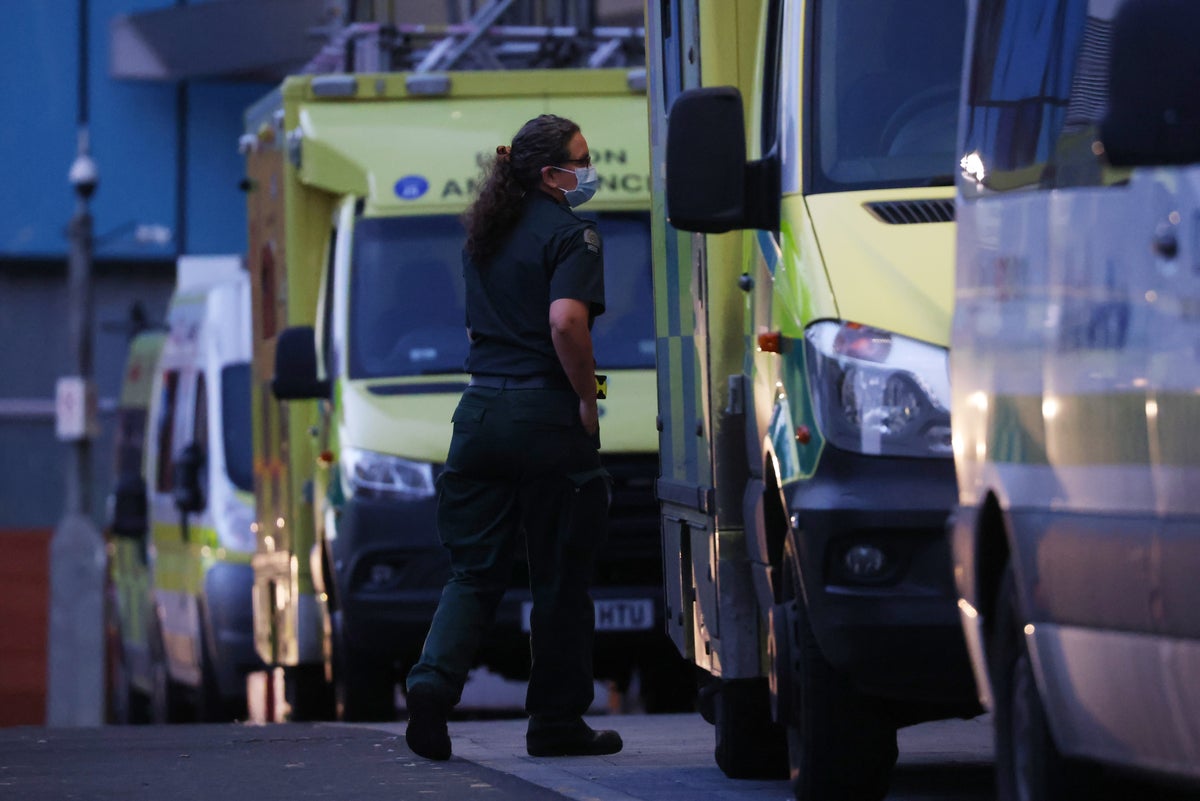
Patients are being left with heart failure and thousands are missing out on vital stroke treatment as ambulance and A&E delays “dismantle” life-saving NHS care, The Independent has learnt.
Heart attack care is “going back in time” and driving avoidable deaths, several doctors have told The Independent, as new figures show that just over half of patients needing care are receiving it in time – a 10 per cent decrease compared with 2020-21.
Doctors have written to the secretary of state for health and social care, Steve Barclay, and to NHS medical director Stephen Powis this week, warning of “unnecessary deaths” due to these delays.
Professor Martin James, a consultant who specialises in strokes, said the latest NHS data, up to September 2022, suggests that 1,000 people a year are not getting the vital stroke treatment they might have received before the pandemic. According to the national stroke audit in 2021-22, just 40 per cent of patients received the care they needed within four hours of the onset of their stroke.
The warnings come after The Independent revealed that almost 6,000 patients are likely to have suffered “severe”, long-lasting or permanent harm due to ambulances being delayed outside hospitals.
Dr Sonya Babu-Narayan, associate medical director at the British Heart Foundation and a consultant cardiologist, said the scale of worsening and “extreme” delays means that patients are not getting help “before the damage is already done”.
“Tackling the cardiovascular crisis is possible, but it needs decisive action now. This means growing the workforce of heart doctors, and nurses, and cardiac physiologists to match demand, while ensuring sufficient and fit-for-purpose specialist heart-care facilities,” she added.
Have you been affected by this story? Email rebecca.thomas@independent.co.uk
NHS England is due to face questions from MPs on Tuesday over the link between rising excess deaths and emergency care delays.
Worsening A&E delays, due to difficulties in admitting patients, are driving record delays for ambulance crews waiting to drop off patients, meaning there are fewer crews available to respond to emergencies.
Dr Tom Johnson, a senior cardiologist in the South West, told The Independent that acute heart-attack care within the UK has been significantly affected over the last six to 12 months.
He said: “Over 10 to 15 years we have successfully created a strong network, from pre-hospital through hospital care to cardiac rehabilitation, reliant upon the incredible ambulance service, and in the space of 6 to 12 months it has been effectively dismantled.
“We have got patients presenting later, and sicker, [who are] at times beyond the point of curative treatment. Our failure to attend and transport patients with suspected heart attacks to hospital has resulted in critical emergencies remote from immediate medical care, and at worst led to avoidable deaths.”
Dr Johnson said the government has a “huge responsibility” to acknowledge and resolve the problems facing the NHS, and that its focus on “greater productivity” is misguided.
“However, the public also have a responsibility to protect their NHS service through the appropriate use of emergency services, ensuring ambulance teams are available to attend the sickest patients as rapidly as possible,” he said.
New figures from a national audit of heart-attack response times, carried out by the British Cardiovascular Intervention Society (BCIS), which were shared at a closed conference on Friday, show a 10 per cent deterioration between 2021-22 and the following year in patients receiving care within 90 minutes and 150 minutes following a 999 call for a heart attack.
Speaking to The Independent, Professor Mamas Mamas, council member for the BCIS, said that because of ambulance delays, many more patients are being treated with “clot-busting” drugs instead of being given an open-heart procedure known as primary PCI.
He said the service was “going back in time”, with clinicians forced to use these drugs, which the treatment protocol moved on from 15 years ago, because patients are not arriving in time for PCI procedures to be performed.
Prof Mamas added that patients who are not given this procedure within a certain amount of time have a greater chance of developing heart failure.
The latest data on excess mortality published by the Office for National Statistics included almost 10,000 additional deaths from heart failure in 2022 compared with the five-year average. There were around 7,000 excess deaths from heart failure in 2021, and 6,358 in 2020.
A Department of Health and Social Care spokesperson said: “We are taking urgent action to improve access, and last week, the health and social care secretary announced up to £250m of funding to immediately reduce hospital bed occupancy, alleviate pressures on A&E, and unblock delays in handing patients over from ambulances.
“This is on top of the £500m discharge fund to speed up the safe discharge of patients who are medically fit to leave hospital, increasing NHS hospital capacity by the equivalent of 7,000 more beds this winter, and establishing 24/7 data-driven system control centres in every local area to manage demand and capacity.”







